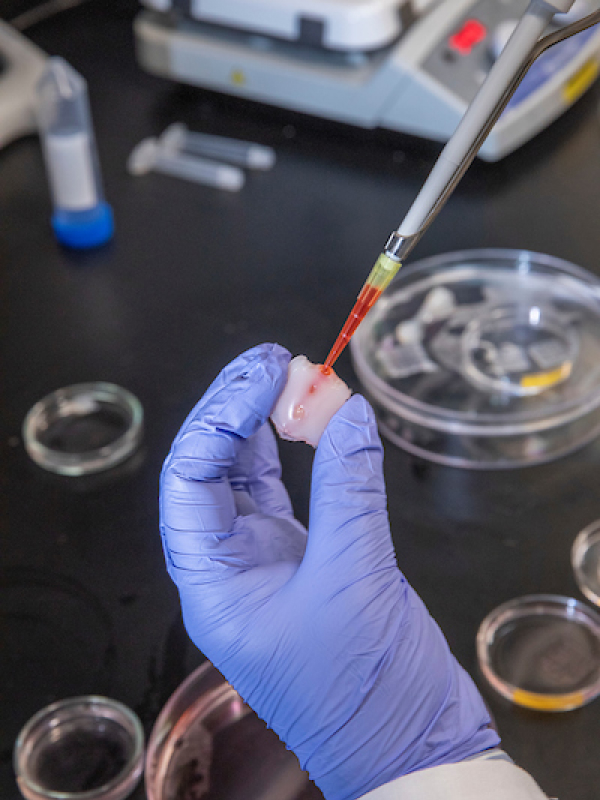Bachelor's Degree in Ceramic Engineering
Earn a Bachelor's Degree in Ceramic Engineering
Ceramic engineers develop ceramic materials and products for a variety of industries, such as electronics, aerospace, healthcare, and construction.
Consider studying ceramic engineering, where you can explore the unique characteristics of ceramics and their countless practical applications.
Want to Know More?
Get info on our program, scholarships, how to visit campus, admissions and more. Take the next step in solving for tomorrow!
Degree Information
What Alumni Say About S&T
 1.jpg)
Through the Freshmen Engineering course, I was introduced to the world of Material Science and Engineering, this led me to pursuing my bachelors in Ceramic Engineering. The Ceramic Engineering department was a perfect blend of immersive learning, and practical industry experience. The departments faculty had a wide breadth of subject matter expertise across all areas of ceramic manufacturing and research. The knowledge I gained through hands-on labs, practice presentations, and various professional development opportunities; I graduated ready to operate in industry as a full-time associate.
— Steph Soendker, Kohler
I first discovered I wanted to be a ceramic engineer after attending a Miner Day on S&T’s campus, when Dr. Wayne Huebner showed me several demonstrations of ceramic engineering applications in aerospace, electronics and glass. I was excited by the diverse career paths a ceramic engineer could take, as well as the unique technologies involved. The amount of expertise and one-on-one support provided by the faculty within the MSE department was paramount to my success within the program, and led me to my career passion of working on Ceramic Matrix Composites at GE Aerospace.
— Andrew Jacobs, GE Aerospace
Your Career in Ceramic Engineering
As a ceramic engineer, your work can involve developing various products such as exterior tiles for the Space Station, cathodes for fuel cells, conductive ceramics for microprocessors and solar panels, bioactive glasses for curing liver cancer, and flexible prosthetics for Paralympic athletes. You may even work on lenses for night-vision goggles used by pilots.
Starting Salary
The average starting salary of ceramic engineering undergraduates is $74,400.
Career Fields
- Aerospace
- Biomaterials
- Electronic Ceramics
- Glass
- Solar Energy & Fuel Cells
Common Hiring Companies
- GE Aerospace
- Honeywell
- Kohler
- Owens-Illinois
- Watlow


Follow Materials Science and Engineering